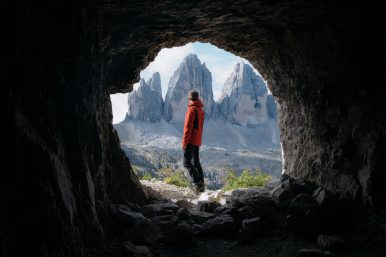Beginner Hiking Tips for Weekend Trips That Start and End in the City
So, you’ve got that little voice in your head. The one that, come Friday afternoon, starts wondering if there’s more to life than traffic and concrete. It’s whispering about trees, maybe a bit of a view. This guide is for you. It’s a simple plan for your first proper hike—a weekend day trip that gets you out of the city and back again without turning your life upside down.
Is a beginner weekend hiking trip from the city realistic?
Absolutely. A lot of people think “hiking” means a multi-day trek up a massive peak, but that’s not where you start. The goal here is a simple, rewarding loop: drive out in the morning, walk a beautiful trail for a few hours, and be back in your own shower that evening, tired but happy.
Think of it as a manageable challenge. For your first trip, you’re not looking to conquer a mountain; you’re just aiming to get acquainted with one. A perfect beginner hike is something in the 5–8 kilometre range with a gentle 200–300 metres of elevation gain. That’s a comfortable two to three hours of walking for most people. The elevation part sounds intimidating, but it’s often just the equivalent of walking up the stairs in a tall office building a few times over, spread out over a couple of kilometres. It’s achievable, and the feeling of eating a sandwich from a scenic viewpoint makes it all worthwhile.
How to choose a beginner-friendly trail near your city
The key to a good first hike is setting yourself up for success, and that starts with picking the right trail. Don’t just google “hikes near me” and pick the one with the most dramatic photos. Look for something specifically labelled “easy” or “beginner-friendly” on trail apps or park websites.
A good first trail should take about 2 to 4 hours to complete. “Easy” doesn’t just mean short; it also means the trail surface is manageable. You want a well-marked, packed-dirt path, not a route full of ankle-twisting rocks or slippery roots. Always check recent trail reviews. They’re a goldmine of real-world information—other hikers will tell you if the trail is muddy, if a bridge is out, or if the bugs are bad. And check the weather forecast for the specific trail area, not just your city, as conditions can be very different an hour’s drive away.
Finally, think about logistics. If you have a car, fantastic. But leave early—an hour earlier than you think you need to—because city traffic on a Saturday morning can eat into your hiking time. If you’re relying on public transport, make sure your chosen trail has a bus stop or train station right at the trailhead, not 5 kilometres down a busy road.
Red flags for your first trail
When looking at trail descriptions, here are a few things to avoid for your very first hike:
- Mentions of “scrambling,” “hand-over-hand,” or “ropes.” This means you’ll be using your hands to climb rocks, which is a next-level skill.
- Multiple river or stream crossings without bridges. Getting your feet wet is a quick way to get blisters and ruin a good day.
- Descriptions that include “route-finding skills required” or warnings about a poorly marked trail. Stick to clearly defined paths.
- Long, exposed sections above the treeline, especially if the weather looks uncertain. You want the option of tree cover.
- Trails known for being extremely technical, with lots of tree roots or loose rock (often called “scree”).
- Anything over 10 kilometres or 400 metres of elevation gain. Save it for your next trip.
What to pack for a beginner day hike (simple checklist)
You do not need to spend a fortune on gear for your first hike. The pros often talk about the “10 Essentials,” which is a great system for serious backcountry trips, but for a simple city-to-trail day trip, you can start with a more focused list. Your goal is to be safe and comfortable, not to pack for a Yukon expedition. The most important thing is a decent backpack to carry everything so your hands are free.
Here’s a simple table to help you decide what’s worth bringing.
| Item | Why it matters on a beginner hike | Pack it for this weekend? |
| Water (1.5–2 L per person) | Dehydration is the fastest way to feel miserable. You’ll sweat more than you think. | Yes |
| Light snacks | A granola bar or some trail mix keeps your energy up and morale high. | Yes |
| An extra layer (fleece or light puffy jacket) | It can be much cooler and windier at elevation or in the shade. | Yes |
| A simple first-aid kit | Blister pads are your best friend. Add some regular bandages and antiseptic wipes. | Yes |
| Your phone (fully charged) | For photos, navigation (as a backup), and emergencies. | Yes |
| Trekking poles | They help with balance and take pressure off your knees, especially on downhills. | Optional, but nice to have |
| Fancy DSLR camera | It’s heavy, and your phone’s camera is probably good enough for your first trip. | Only if you really want it |
Beyond the table, a few other small things belong in your pack:
- Sunscreen and a hat.
- A small garbage bag to pack out your trash (and any you find along the way).
- Your keys and wallet.
That’s it. For a deeper dive, you can look at something like REI’s day hiking checklist for beginners, which covers gear for more ambitious hikes. But for your first outing, the list above is plenty.
How to plan your weekend hiking schedule from the city
The secret to a low-stress day is a simple schedule. You’re not trying to cram too much in; you’re just building a smooth journey from your front door to the trail and back again.
Early Morning (7:00 AM – 9:00 AM): Wake up, have a real breakfast (not just coffee), and do a final gear check. Fill your water bottles. Double-check the driving directions. Aim to be on the road before the rest of the city wakes up.
Late Morning / Midday (9:00 AM – 2:00 PM): Arrive at the trailhead. Take a minute to use the washroom if there is one, and check the main map board. Start your hike. The most common beginner mistake is starting out too fast. It’s not a race. Walk at a comfortable pace, stop for water often, and take photos. This is the main event—enjoy it.
Afternoon (2:00 PM – 5:00 PM): Finish your hike and get back to the car. Take off your muddy boots before you get in—your future self will thank you. Start the drive back to the city, knowing that you’ve earned a good meal and a relaxing evening.
Evening (5:00 PM onwards): You’re home. First things first: hot shower. Then, food. Whether you’re ordering pizza or cooking a proper meal, it’s going to taste incredible. You’ll probably feel a pleasant, low-level tiredness in your legs.
I remember my first “real” hike from Toronto. We underestimated the weekend traffic on the 400 and got to the trailhead an hour late, which meant we had to cut the walk a bit short. We were grumpy for about ten minutes, but the trail was so quiet and smelled so much like pine that we forgot all about it. That first post-hike burger back in the city felt like the best meal I’d ever had.
After dinner, if you have any energy left, you can keep the theme going. A friend of mine likes to unwind with a quick, low-effort gaming session. He says something like Mountain Heroes by CT Interactive is perfect—it keeps the mountain vibe going without requiring you to take another step.
Beginner hiking safety tips you shouldn’t skip
This isn’t about being paranoid; it’s about being prepared. Hiking is very safe, but being smart is what keeps it that way. This stuff sounds like common sense, and it is, but it’s the stuff people forget when they’re excited.
- Tell someone your plan. Send a text to a friend with a link to your planned trail and tell them when you expect to be back.
- Check the weather again. Look at the forecast right before you leave home. A sunny morning can turn into a rainy afternoon.
- Know your turnaround time. A good rule of thumb is to identify the halfway point of your hike and note the time. If it took you longer than expected to get there, you know the return trip will be just as long.
- Stay on the signed trail. Don’t take shortcuts. Most trails are designed to be sustainable and safe, and wandering off them can lead to getting lost or damaging the environment.
- Watch your footing. Most hiking injuries are simple sprained ankles from not paying attention.
- Don’t use headphones in both ears. You want to be able to hear if a mountain biker or a bear is coming up behind you. (The bear is unlikely, but it’s good practice.)
- Pack out what you pack in. Leave the trail cleaner than you found it.
You’ve made it this far, which means you’re serious about giving this a try. The planning is the hardest part, and now you have a blueprint for that. The best beginner hiking tips for weekend trips are the ones that actually get you out the door. So here’s the plan: find one easy trail, block off a Saturday in your calendar, and test this city-to-mountain-to-city loop for yourself. The concrete will be waiting for you when you get back.



